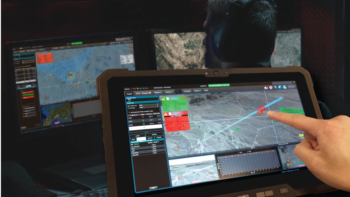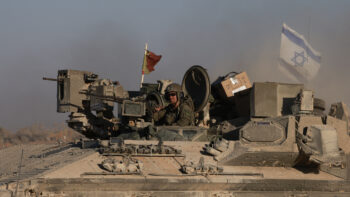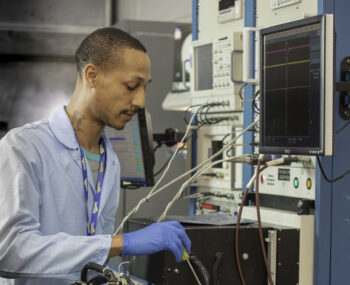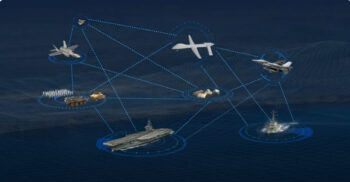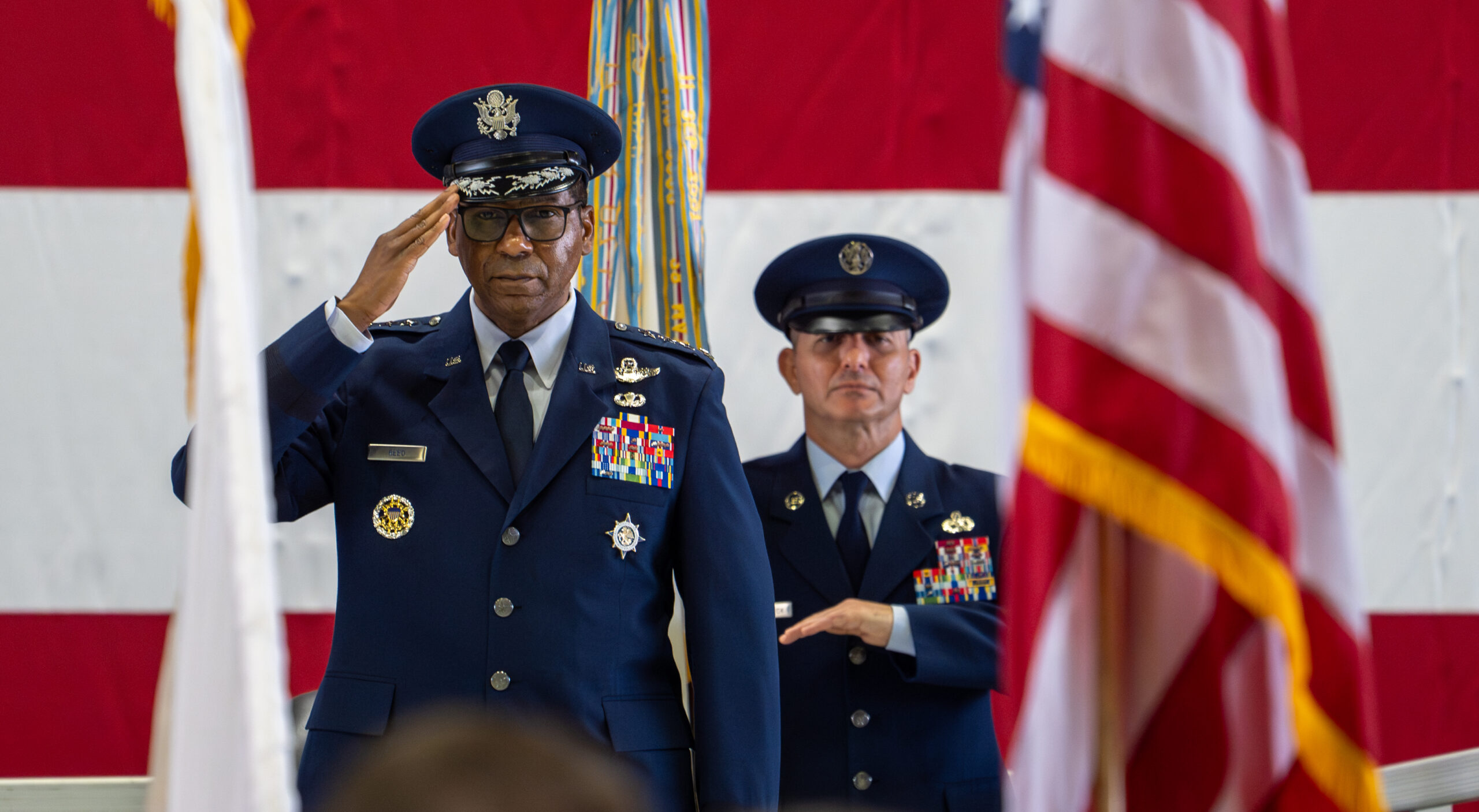
Gen. Randall Reed, the new U.S. Transportation Command commander, salutes the colors during his change of command ceremony at Scott Air Force Base, IL. (Photo by Brien Vorhees/USTRANSCOM)
WASHINGTON — The rise of great power competition means that American soil is at risk, the newly-minted head of US Transportation Command (TRANSCOM) warned today — requiring an updated mindset as well as better defenses against “non-kinetic” threats and operations in the “gray zone.”
Speaking before a meeting of the National Defense Transportation Association in St. Louis, Air Force Gen. Randall Reed harkened back to the time of nuclear drills during the Cold War to evoke a collective sense of urgency he argued has gone by the wayside.
“There was a national consciousness that somebody could do something to us,” he said. “We’ve lost that.”
While not calling out Russia and China by name — only referring to them using Pentagon parlance as respective “acute” and “pacing” threats — Reed said viewing the two countries as able to properly threaten the continental US should motivate new thinking to “shore up” domestic operations.
“The homeland is no longer a sanctuary,” he continued. “We have great, great power to deter in the kinetic realm. The question will be, how do we continue to get stronger in the non-kinetic and the gray zone realm? And there’s a lot of work to be done there.” (Gray zone refers to the space between peace and war, where adversaries can engage in activities like cyber attacks.)
Reed, who took over command of TRANSCOM from outgoing chief Gen. Jacqueline Van Ovost in an Oct. 4 ceremony, inherits a series of conflicts ruled by daily logistics operations. TRANSCOM has been instrumental in shipping aid to Ukraine, for example, as well as providing weapons to Israel and aid to civilians in Gaza.
The specter of conflict in the Indo-Pacific promises to further stress TRANSCOM’s operations, particularly as increasingly sophisticated Chinese defenses pose threats to bases and relatively vulnerable key assets like shipping vessels, refueling aircraft and cargo planes — a concept often called “contested logistics.”
Reed said a critical need for the command is to enjoy a “decision advantage,” or essentially the ability to quickly make the right choices in any circumstance and at all levels. Still, even in relatively more peaceful settings like operations today, the general disputed the notion that logistics operations aren’t currently contested.
“Logistics is always contested. If nothing else, it is the perfect home for Murphy’s Law,” he said. “The mechanical nature of things has a vote. The level of training of our people has a vote. Things are going to go wrong.”
After troubles, a future upgrade, better availability should put NH90 in clearer skies: NHI CEO
NHIndustries has suffered high-profile blows as three capitals backed out of helicopter deals, but CEO Alex Aloccio said he sees “lots of commercial opportunities” as the helos get outfitted with new tech and capabilities.
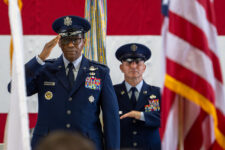
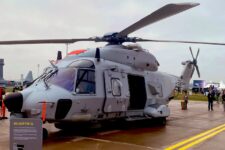
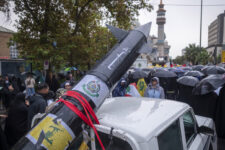
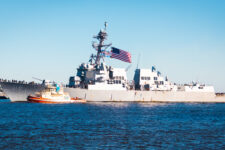
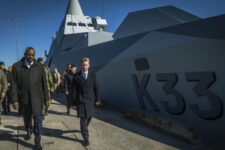
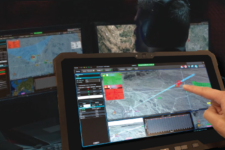
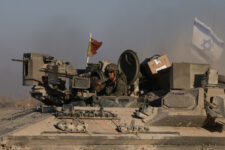

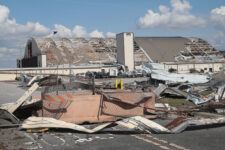
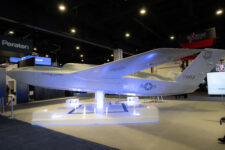
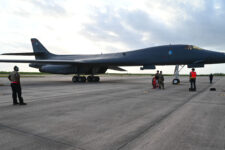

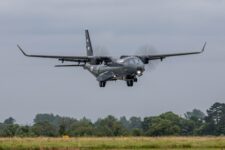
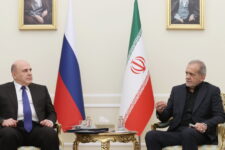
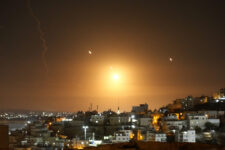

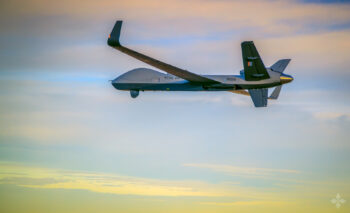
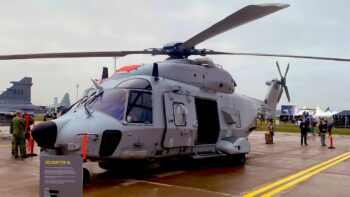
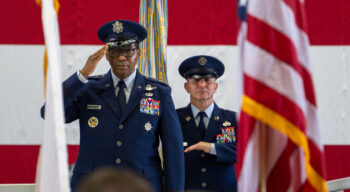
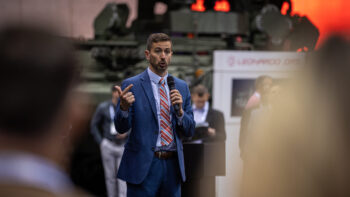
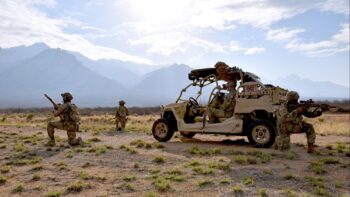

![T2BETA_PROGRAM_REVIEWED1[1]](https://breakingdefense.com/wp-content/uploads/sites/3/2024/08/T2BETA_PROGRAM_REVIEWED11-350x219.jpg)
